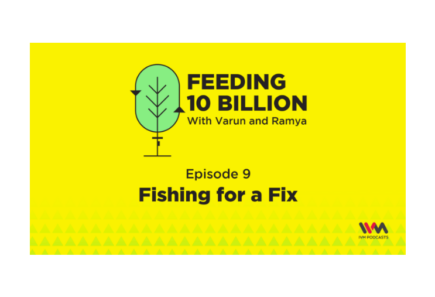
GFI summary of the CE Delft TEA Corrigendum
GFI's overview of CE Delft's TEA Corrigendum, which corrects an error in the initial report and re-analyzes cost projections.

GFI's overview of CE Delft's TEA Corrigendum, which corrects an error in the initial report and re-analyzes cost projections.

Are you interested in working in alternative protein? Join SciTech university innovation specialist, Christina Aguila, to learn more about what it takes to pursue an academic or industry career in this rapidly growing field.

Impossible and Beyond Meat succeeded in garnering consumer interest in plant-based meats, especially amongst a growing base of flexitarians. Now a new crop of startups is focused on doing the same for plant-based seafood.

Jen speaks with GFI India’s Varun and Ramya about the plights facing our oceans-- including plastic waste, climate change, and overfishing-- and the role that plant-based and cultivated seafood have to play in solving these issues.

The meat alternative market has plenty of burgers, sausages, and steaks to meet the demands of an increasingly flexitarian marketplace. However, seafood alternatives are scarce in comparison. Why is this the case? GFI’s Jen Lamy joins a team of expert panelists to answer this question.

Perspectives from the beginning of a long journey

As UPSIDE Foods opens the world’s most advanced cultivated meat production facility, GFI urges increased investment from public and private sectors to speed up production and bring this better way of making meat to the masses.

The Smart Protein Summit is your chance to hear from thought leaders, industry titans, pioneering scientists, and avant-garde entrepreneurs - from India and beyond. Designed to facilitate action, learning, and networking, your world-changing smart protein plans could come to life through the Smart Protein Summit 2021.

Join Dr. Reza Ovissipour, Assistant Professor in Cellular Agriculture in the Department of Food Science and Technology at Virginia Tech, to learn about his work in optimizing media for the production of cultivated seafood.
Enabling easy animal ingredient substitutions in a wide range of food products.